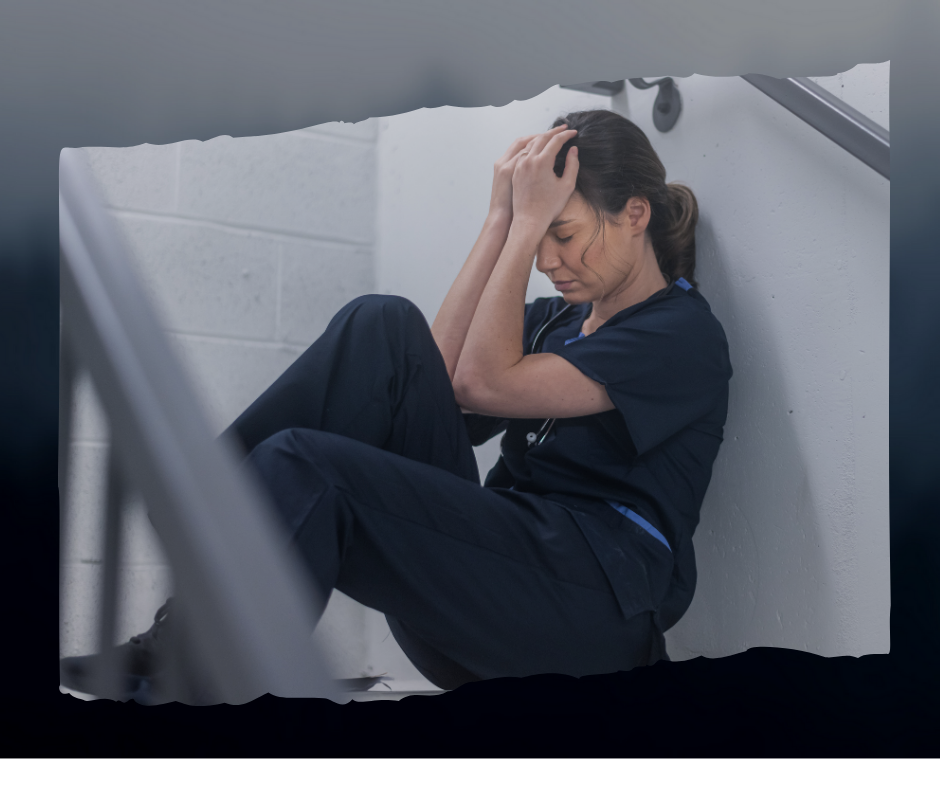Fighting to Stay: One Nurse’s Truth About Burnout and Short Staffing

Nurses aren’t leaving because they don’t care. They’re leaving because they’re tired of being set up to fail.
Short-staffed shifts. Overflowing patient loads. Never enough resources. Healthcare keeps asking nurses to do more with less—until there’s nothing left to give.
One of our nurses in Charleston tells her story. She’s seen it all, felt it all, and hit burnout in every possible way. In her own words, she shares what it’s like to push through exhaustion, fight for your patients, and wonder if staying is even worth it anymore.
👉 Keep reading for her raw, unfiltered take on burnout and why so many nurses are walking away.
Burnout for Me
Burnout in nursing often starts in school—with the endless tests, papers, clinicals, and the constant pressure to master aseptic technique. But for me, that wasn’t the case.
They tell you nursing is a noble profession, a calling. But once you’re in it, you realize you’re not just a nurse—you’re a medication dispenser, a waitress, an environmental services worker, a phlebotomist, and a pillow finder all rolled into one.
I’ve been a nurse for nearly 15 years, and I’ve experienced burnout in every possible way. But like a woodwick candle, I find ways to keep the flame burning just long enough to see my way through the darkness—before having to find a new room, a new setting, a new way to cope.
The Cycle of Burnout
For me, travel nursing has been the best way to survive in this profession. It offers change—new environments, new people, and a shift in patient populations. When I need a break, I turn to the ER—yes, I actually work in the emergency room to recover.
Because working short-staffed, shift after shift, in a unit where the sickest patients aren’t getting the care they deserve—not because we don’t want to, but because we don’t have the resources—that’s what makes me want to quit. That’s what makes me want to put down my stethoscope and walk away.
COVID Took It to a Whole New Level
And then COVID hit.
We tried so hard to save just one person—just one. But at first, no one who went on a ventilator made it out alive. Patients died alone, without family, without comfort. We became their last connection to the world.
We weren’t just nurses. We were their family, their friends, their final hand to hold. And we did it while barely knowing our own coworkers, hidden behind layers of PPE, only recognizing each other by the exhaustion in our eyes.
We became a pact, a unit of silent warriors, facing death every day, bag after bag, until it felt normal—and that was the scariest part. There was no time to process, no time to grieve. We had to move on to the next patient, the next hope.
I did that for two years before I finally broke.
The Aftermath of War
When the alarms stopped blaring so often, when the ventilators weren’t running constantly, when things should have felt better—it hit me like a ton of bricks.
Had I just fought a war? Had I actually survived?
I had to take a break. My candle was out.
We Are Human Too
People forget that nurses and healthcare workers are human, too. We feel pain. We carry emotions. We build connections with patients and their families, and sometimes, they feel like our own.
So, on the hardest days, when I feel unseen and unappreciated, when I want to throw in the towel, someone—a former patient, a grateful family member—reminds me that what I do matters.
And for a moment, my candle glows again.
But it’s short-lived.
Because here comes the next patient—the regular who hits and kicks me, who curses me out, who makes me question why I keep doing this to myself.
The Only Thing We Ask
Be kind to us. We will continue to do our best to stay in this profession—for you.